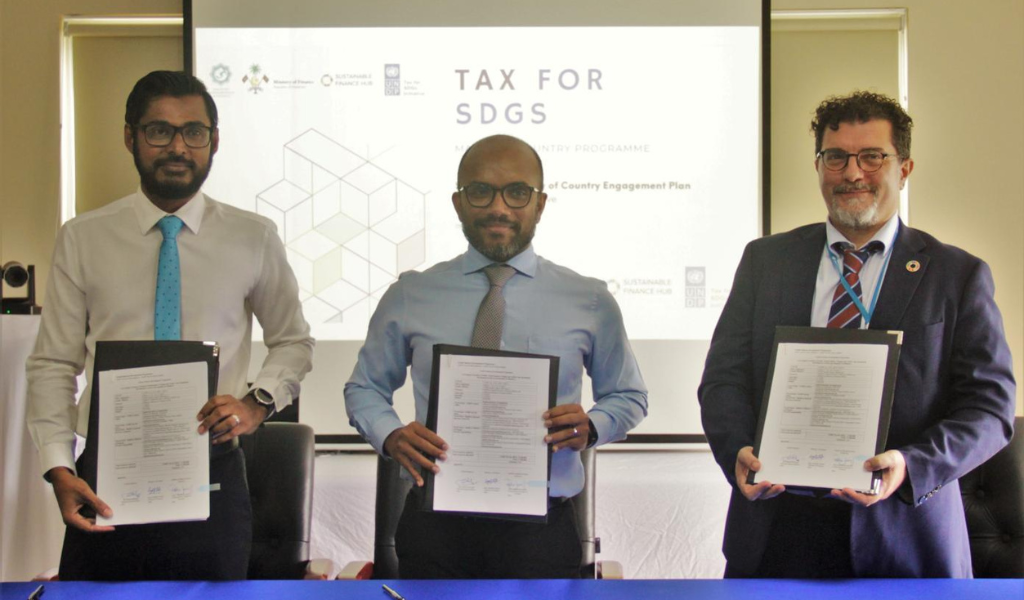
Ministry of Finance X MIRA Signs With UNDP Maldives To Enhance Effectiveness of Tax System
On Wednesday, United Nations Development Programme (UNDP) in Maldives signed with the Ministry of Finance and Maldives Inland Revenue Authority (MIRA) to implement the Country Engagement Plan of the Tax for Sustainable Development Goals (SDGs) Programme.
Aligning with the Government of Maldives’ Strategic Action Plan, this new-found initiative will seek to enhance the effectiveness of the Maldivian tax system and expedite progress in achieving the SDGs set for by Agenda 2030. Maldives and Bhutan were the only countries selected for the programme from the Asia Pacific region and will be supported by donor governments from Norway and Finland as they implement the programme in the 2022-2024 period.
Taxation and fiscal policies are vital tools that governments can utilize to shape public finance into achieving the SDGs. Taxes provide the framework on which new and more sustainable growth strategies can be fueled, altering behavioural changes that yield positive outcomes in the environment, health, gender and etc.
Speaking on the occasion, Minister of Finance, Ibrahim Ameer stated “Government revenue is allocated to finance SDGs, which includes increased spending on health sector and the environment. The Tax for SDGs initiative will enhance the effectiveness of our tax system, further strengthen our fiscal policy and help accelerate the progress of attaining SDGs”.
The three main areas the programme will focus on in the Maldives with a strong gender focus include:
1.Increasing Tax Efficiency and Digitalization
2.Building Equitable Taxation Systems
3.Capacity building
Fathuhulla Jameel, Commissioner General of Taxation remarked “MIRA appreciates the continuous support provided by UNDP for institutional development and achievement of SDGs. UNDP programs have significantly contributed to the capacity development of staff and assisted in leveraging innovative solutions in fulfilling strategic objectives of MIRA”.
The Tax for SDGs programme will reinforce existing support provided by the organization to the Government of Maldives, broadening its reach on fiscal space and leveraging innovative financing solutions. This will be achieved through the Climate-themed Development Finance Analysis and the Integrated National Financing Framework (INFF).
“Taxation when run in a fair, equitable and transparent manner, builds trust, strengthens citizen/state relationship, and grants service providers the social license to channel public finances and deliver those services most needed by the people,” said Enrico Gaveglia, UNDP Resident Representative in the Maldives.